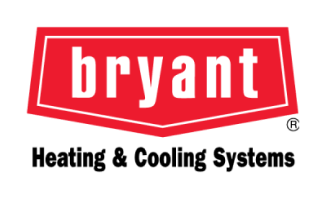That gurgling symphony from your kitchen sink every time you flush the toilet isn’t just annoying background noise – it’s a telltale sign that your home’s plumbing is out of tune. Ignoring those gurgles would be ill-advised, as they often signal underlying blockages, ventilation problems, or the opening salvo of much larger drain calamities brewing beneath the surface.
Gurgling sinks aren’t mere inconveniences to casually brush aside. Left unaddressed, those aquatic burblings can escalate into foul sewer odors infiltrating your living spaces, sluggish drain flow issues leading to toilet overflows and flooded floors, and extensive (read: painfully expensive) plumbing repairs and renovations down the line.
This comprehensive guide dives deep into the mystery of why sinks gurgle in response to toilet flushes. You’ll gain an insider’s understanding of the mechanical underpinnings and pipe physics behind the phenomenon. We’ll explore the various common culprits responsible for triggering those gurgles, the risks of letting them persistently grumble unresolved, and a full walkthrough of the steps you can take – from DIY solutions to calling in professional backup – to silence those unnerving plumbing symphonies once and for all.

The Mystery of Gurgling Sinks: An Immediate Deep Dive
To truly understand what’s causing those gurgling noises from your sink every time you flush the toilet, we need to break down the core mechanics of how residential plumbing systems function.
At its most basic level, your home’s plumbing relies on a combination of drainage pipes and ventilation to allow wastewater and sewage to properly flow out while preventing potential hazards like sewer gas buildup or a loss of water flow altogether.
Drainage Pipes 101
The various fixtures in your home, like sinks, showers, toilets, and appliances, are all connected to a complex branching network of drain pipes that ultimately converge into your home’s main sewer line. This sewer pipe then transports all that wastewater away from your residence.
These drain pipes aren’t just empty tubes, though. Water constantly sits in the curved P-trap portions under sinks and other drains, creating a liquid barrier that prevents dangerous sewer gases from wafting up into your living spaces.
The Role of Ventilation
For this drainage system to function properly, air has to be able to flow through pipes and vents smoothly as water rushes out. This is where your home’s plumbing ventilation comes into play.
Vent pipes installed on the roof allow outside air to enter the system, preventing any vacuum pressure from building up and restricting water flow through drains. These vents essentially “breathe” for your plumbing, allowing air to replace any water or waste being eliminated.
What Causes The Gurgles?
With this basic plumbing setup in mind, the mystery behind gurgling becomes clear. Those gut-churning gurgles occur when there’s an obstruction or blockage disrupting the normal flow of air through those all-important ventilation pipes.
When you flush a toilet, a high-pressure burst of air gets forced down the drains as a slug of water rushes out. In a properly vented system, this air burst easily travels back up through vents. But if those vents are clogged or blocked, that pressurized air has nowhere to go except backward through other drain pipes – like your sink!
This displaced air escaping back through the sink’s P-trap is what generates those all-too-familiar gurgling and bubbling noises. And it happens since the path of least resistance for that air is to exit in reverse through any open drain other than where the flush occurred.
Gurgling is essentially your plumbing’s way of telling you, “Hey, I’m not breathing properly!” When vents are cleared, liquids and solids can freely drain from pipes without any trapped air churning back up through your sink or tub.
While frequent gurgling is obviously an annoyance, it’s also a clear indicator to savvy homeowners that something is preventing that vital airflow – usually either a blocked vent, clogged waste pipe, or other underlying plumbing issue. Ignoring those gurgling warning signs sets you up for even bigger potential headaches down the road.
Common Causes of a Gurgling Sink
Now that we understand the mechanics behind why sinks gurgle when other fixtures drain, it’s time to dive into the most frequent culprits disrupting that all-important plumbing ventilation and airflow. While gurgling is just a symptom, it often stems from one of these three main offenders.
Blocked Vents
Since inadequate venting is the primary driver of gurgling sounds, it makes sense that one of the top causes involves blocked plumbing vents. These vent obstructions prevent that smooth airflow replacement when water rushes out of drains.
Vents can become clogged from accumulated debris over time – leaves, twigs, nesting materials from critters, or even environmental factors like ice dams in winter allowing water backup and freeze damage. Even exceptionally gusty winds have been known to force obstructions into vent pipes on occasion.
Telltale signs of blocked vents include gurgling from multiple drain fixtures, slow drainage problems, and the presence of sewer gas odors if the blockage is severe enough to eliminate venting altogether. Fortunately, vent obstructions are often among the more straightforward gurgling culprits to troubleshoot and resolve.
Homeowners can safely attempt to dislodge many vent blockages themselves with tools like plumber’s augers or compressed air. Or call in professional plumbers, who use specialized equipment like large vent brushes to clear particularly stubborn obstructions. Ensuring proper venting is restored should alleviate virtually all gurgling woes.
Blocked or Clogged Pipes
Just as blocked vents restrict that crucial airflow replacement, the same gurgling phenomenon frequently arises when your home’s waste drainage pipes themselves become obstructed or clogged. Without an easy path for water and air displacement, those bubbling sounds are inevitable.
Drainage clogs have no shortage of potential culprits – from clumps of hair and solidified grease/soap scum buildup to flushed foreign objects like toys or hygiene products. Over time, these materials accumulate and merge into dense, sludgy obstructions restricting normal pipe flow.
Minor sink and tub clogs are often within the realm of DIY snaking and auguring using solutions like handheld drain snakes, zip-it tools, baking soda/vinegar mixtures, or basic drain cleaners. These can sometimes bore through or dissolve lighter blockages.
For deeper, more severe drain obstructions that back up entire waste pipe branches, you may need to enlist professional drain cleaning services. Plumbers have access to specialized jetting and cabling equipment capable of pulverizing through even the most solidified, stubborn clogs.
One crucial note – drainage backups sometimes emit gurgling sounds on their own before escalating into full clogs as pressure builds up behind obstructions. If the gurgling persists despite your best DIY efforts, it’s wise to consult a plumber to assess hidden blockages.
Lurking Plumbing Issues
While clogged vents and pipes account for the vast majority of gurgling incidents, there are indeed some cases where those ominous sounds stem from larger, more complex plumbing system issues lurking out of sight.
Cracked, collapsed, or deteriorating waste pipes gradually succumbing to age and ground settling can absolutely trigger drainage airflow problems and gurgling sounds as their structural integrity degrades. Invasive tree roots infiltrating and puncturing buried pipe networks are another notorious culprit.
Sometimes gurgling accompanies much bigger issues like a failing main sewer line on the verge of catastrophic backup, damaged/disconnected vent pipes, or shoddy drainage system design that lacks proper venting altogether. Even appliance obstructions from washing machines or dishwashers can cause sporadic gurgling.
The key here is understanding the nuances of gurgling patterns and any supplementary symptoms. If sounds are isolated to only certain fixtures, it likely points to a localized clog. But if gurgling is widespread, frequent, and coupled with slow drains and potential sewage odors or water backups – those indicate problems requiring professional evaluation.
While attempting DIY remedies for suspected pipe clogs or vent blockages is fine initially, any homeowner repeatedly battling pervasive gurgling should have their entire plumbing system thoroughly inspected. An experienced plumber can use specialized cameras and equipment to diagnose underlying issues average homeowners can’t locate on their own.
Leaving complex plumbing system problems unresolved often leads to compounding, increasingly costly scenarios like sewage backups into your home, hazardous gas buildups, pipe collapses requiring extensive repair work, and even potential structural damage over time as deterioration worsens. Calling in professional expertise is crucial when facing more obscure, systemic gurgling triggers.
Impact of Ignoring Gurgling Noises
At this point, the importance of promptly investigating gurgling drain sounds should be crystal clear. More than just a nuisance, those gurgles are effectively your plumbing’s way of raising a red flag that something isn’t right. Ignoring them sets you up for a cavalcade of nasty potential issues down the line.
Letting gurgling go unaddressed allows underlying problems like obstructed vents, clogged pipes, and any other system failures to progressively worsen over time. What may start as an occasional mild gurgle can rapidly escalate into pervasive drainage struggles impacting every fixture in your home.
Failed Venting = Rancid Odors
As blocked vents completely prevent natural airflow replacement, gurgling eventually gives way to rotten sewage smells permeating your kitchen, bathrooms, and living spaces. Those P-trap water barrier seals are the only thing preventing noxious sewer gases from infiltrating when venting is lost.
Drain Backups and Overflows
Clogged drainage pipes heighten risks of sewage backups and overflows the more obstructions are allowed to intensify. All it takes is that final tipping point of pressure buildup behind a severely compacted clog to send wastewater literally gushing back up through sink, shower, and even toilet drain lines.
Water damage from overflowing drains is no joke – being proactive about gurgling prevents potentially disastrous (and expensive) restoration scenarios. Letting gurgling persist also increases risks of pipes bursting under intense clog strain.
Structural Deterioration
Out of sight, out of mind certainly applies to easy-to-ignore gurgling sounds. But lack of maintenance allows deteriorating buried pipes and infrastructure to reach failure points undetected until it’s too late.
Crumbling, collapsed pipes release sewage into surrounding soil that can ultimately infiltrate your home’s foundation. Untreated root penetration through cracked lines compounds damage over years. What started as minor gurgling paves the way for comprehensive structural nightmares.
Health Hazards
Excessive sewer gas exposure, growth of toxic black mold in damp overflow areas, and the potential spread of harmful bacteria and pathogens from sewage backups all pose legitimate health risks. Protecting your family should be the top priority when addressing plumbing red flags like gurgling.
While the odd isolated gurgle from a single fixture drain is relatively harmless on its own, persistent widespread gurgling indicates systemic problems deserving prompt investigation and remediation. Procrastinating allows small issues to snowball into monumental gut-renovation projects down the road.
Savvy homeowners recognize gurgling as an early warning sign to take action – whether through DIY rootering and unclogging, or enlisting professional inspections and repair expertise. Getting ahead of those bubbling gurgles prevents plumbing headaches from compounding into nightmares. An ounce of prevention protects your home’s value and your family’s wellbeing.
DIY Solutions and Preventive Measures
For isolated incidents of gurgling stemming from basic vent blockages or light drain clogs, there are plenty of DIY solutions worth trying before calling in professional reinforcements. With some elbow grease and the right tools, many homeowners can successfully unclog their own drains and get plumbing ventilation flowing properly again.
Handy Gurgling Fixes:
Plunging and Snaking
Don’t underestimate the plunger’s usefulness for dislodging soft obstructions like hair clumps and light buildup causing gurgling. Invest in a toilet plunger for sink drains too for maximum air seal and force. For tougher clogs, feed a drain auger or zip-it tool down the pipe to grab and retrieve debris.
Vent Rodding
For vent stack clearing, plumber’s augers with long flexible rods are perfect for dislodging leaves, nests, or other debris providing a blockage. Carefully insert the auger cable down the vent pipe as far as it will go before cranking and working it back out.
Compressed Air
When you suspect lighter vent obstructions, invest in an air compressor kit made specifically for clearing plumbing stacks. The concentrated air burst can sometimes forcefully dislodge offending debris when rodding fails.
Baking Soda and Vinegar
This two-ingredient combo creates a chemical reaction that can help dissolve organic buildup and provide a deodorizing drain cleaning. Pour baking soda down drains, followed by vinegar, cover tightly, let it fizz for 15+ minutes, then flush with hot water.
Chemical Drain Cleaners
For tougher sink and shower clogs that baking soda can’t tackle, use caution when utilizing chemical drain openers containing harsh ingredients like sulfuric acid and lye. Always follow product safety protocols and ensure proper ventilation.
Preventative Pointers:
While knowing how to clear gurgle-causing clogs is crucial, an ounce of prevention is worth a pound of cure. Establishing good habits that prevent plumbing troubles in the first place is your best defense against future gurgling woes.
Never treat your sink drains like a garbage disposal by pouring grease, fats, and cooking oils down them. These substances rapidly congeal and accumulate on pipe walls as they cool, gradually restricting flow. Instead, collect grease in containers and discard it with your trash.
Be just as diligent about not rinsing food scraps and remnants into drains either. Scrape plates and pans clean into the garbage or compost bin before washing dishes. Even small food particles can contribute to nasty buildup over time.
For bathroom drains, use drain catchers or hair traps to capture hair strands, which are notorious for clumping into drain-clogging gunk balls. An ounce of preventative screening beats battling hairy blockages.
Periodically, usually every few months, inspect accessible drains under sinks, tubs, or basement floors for any visible buildup accumulating. If you notice sludge or debris, break out a plumber’s hand auger to give those drain lines a quick preventative snaking and clearing.
Even with no signs of clogs, consider routinely snaking your main sewer drain line annually or bi-annually. This helps remove any accumulating sludge and prevents it from gradually hardening into obstructions over years of household use.
Finally, make it an annual spring-cleaning routine to inspect any plumbing vent stacks on your roof. Use a plumber’s auger to clear away any leaves, twigs, animal nests, or other debris piling up around the vent openings that could impede proper airflow and venting for your entire drainage system.
Combining some simple, sustainable cleaning habits with DIY preventative drain maintenance and ensuring proper venting equals a potent one-two punch. With some basic proactive practices, you’ll keep pesky gurgling sounds from becoming recurring, bigger plumbing problems down the line.
When to Seek Professional Help
Despite your best DIY efforts, there inevitably arise situations where those gurgling plumbing sounds stem from issues beyond the scope of quick home remedies. Recognizing when it’s time to wave the white flag and call in the professionals prevents minor problems from ballooning into major headaches.
Signs It’s Time to Hire a Plumber:
- Gurgling is widespread throughout multiple fixtures.
- Slow drainage backup persists despite snaking/unclogging.
- You detect foul sewer odors accompanying the gurgles.
- Visible signs of water/moisture around drains or flooring.
- Gurgling is constant, not just occurring after fixture use.
- You’ve exhausted all basic DIY solutions to no avail.
These indicators often point to lurking problems like collapsed/deteriorating pipes, system-wide obstructed venting, major sewer line blockages, or even structural issues around your plumbing’s infrastructure. Thoroughly diagnosing and resolving these kinds of complex clogs and airflow disruptions requires professional expertise.
When vetting potential plumbing services, look for operations that:
- Employ licensed, highly trained plumbing technicians.
- Utilize specialized drain inspection cameras and locators.
- Have access to commercial-grade auguring and jetting equipment.
- Offer comprehensive video pipe inspections to diagnose issues.
- Back their work with labor warranties and satisfaction guarantees.
- Maintain an honest, transparent pricing philosophy.
Don’t cut corners by hiring unlicensed handymen or settling for the cheapest option. Plumbing system problems require qualified, experienced professionals utilizing proper equipment and diagnostic tools to get to the root cause.
Plumbers versed in the latest trenchless repair techniques can often resolve gurgling triggers like collapsed pipes, failed joints, and obstructed lines through minimally invasive methods – rather than expensive dig-up and replacement. Their drain cleaning capabilities also resolve problems more comprehensively than temporary homeowner remedies.
By knowing when to call in the pros and vetting them thoroughly, you’ll ensure those pesky gurgles get addressed permanently – saving you from escalating issues, deteriorating plumbing, and exponentially costlier repairs down the road. A professional assessment is the wise choice anytime gurgling persists.
Stop Ignoring Those Gurgling Drains – Call Bassett Services Today
That gurgling noise from your sink isn’t just some minor annoyance to grudgingly tolerate. It’s a clear warning sign from your plumbing system that bigger problems are lurking beneath the surface. Ignoring persistent gurgling leaves you vulnerable to foul sewer odors, overflowing drain backups, accelerated pipe deterioration, and even potential structural damage down the line.
In this guide, you’re now armed with a comprehensive understanding of why sinks gurgle when other fixtures drain, the various common causes like obstructed vents or clogged pipes, and the risks of letting those gurgles go unresolved for too long. You’ve also learned DIY methods for attempting to clear blockages and maintain proper plumbing ventilation on your own.
However, as this guide stressed, there are absolutely scenarios where gurgling indicates issues beyond quick home remedies – like deteriorating pipes, collapsed lines, or widespread drainage system failures. In these cases, you need to call in the professionals for a thorough diagnostic inspection.
That’s where Bassett Services comes in. Our technicians utilize the latest drain cameras, hydro-jetters, and commercial-grade auguring equipment to tackle any clog or ventilation blockage. We offer comprehensive video inspections to get to the root cause of pervasive gurgling once and for all.
Don’t allow those gurgling sounds to escalate into catastrophic plumbing failures. Call Bassett Services at (317) 360-0054 and let our team get your drains flowing smoothly and quietly again throughout the Indianapolis area. Eliminate those gurgles for good!





